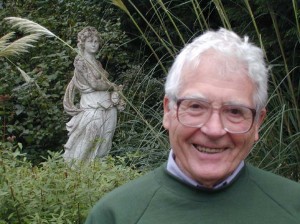It is a wonderfully philosophical and pragmatic 90 year-old James Lovelock who is interviewed in New Scientist this week.
The man who came up with the Gaia Theory reckons the world is all but doomed – only one thing will prevent our demise – burying vast amounts of charcoal.

A couple of choice excerpts:
NS: Do you think we will survive?
JL: I’m an optimistic pessimist. I think it’s wrong to assume we’ll survive 2 °C of warming: there are already too many people on Earth. At 4 °C we could not survive with even one-tenth of our current population. The reason is we would not find enough food, unless we synthesised it. Because of this, the cull during this century is going to be huge, up to 90 per cent. The number of people remaining at the end of the century will probably be a billion or less. It has happened before: between the ice ages there were bottlenecks when there were only 2000 people left. It’s happening again.
I don’t think humans react fast enough or are clever enough to handle what’s coming up. Kyoto was 11 years ago. Virtually nothing’s been done except endless talk and meetings.
I don’t think we can react fast enough or are clever enough to handle what’s coming up
NS: It’s a depressing outlook.
JL: Not necessarily. I don’t think 9 billion is better than 1 billion. I see humans as rather like the first photosynthesisers, which when they first appeared on the planet caused enormous damage by releasing oxygen – a nasty, poisonous gas. It took a long time, but it turned out in the end to be of enormous benefit. I look on humans in much the same light. For the first time in its 3.5 billion years of existence, the planet has an intelligent, communicating species that can consider the whole system and even do things about it. They are not yet bright enough, they have still to evolve quite a way, but they could become a very positive contributor to planetary welfare.